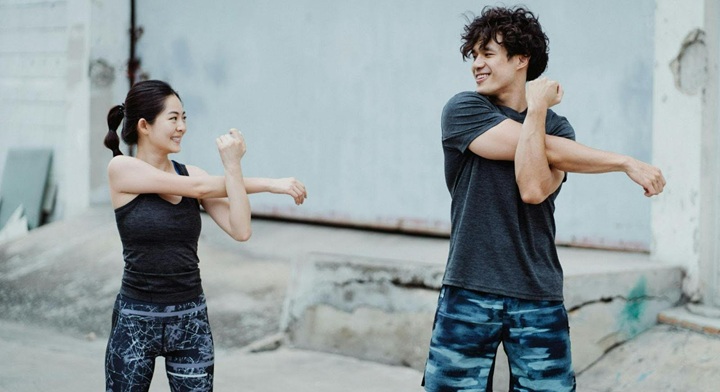
Hypertension, cardiovascular disease, obesity, type II diabetes, cancer, and depression are typical health conditions associated with middle age—the result of genetics and years of poor lifestyle choices finally catching up on those in their 50s and 60s.
But such diseases are no longer exclusive to Boomers and Generation X according to top hospital in the Philippines, Makati Medical Center (MakatiMed). Of late, doctors have been diagnosing these diseases in millennials, or those born between 1981 and 1996, making them in their late 20s to early 40s as of this writing.
Per a 2022 report from the Department of Health (DOH), 36 percent of Filipinos 20 years old and above are obese, 20 percent are smokers, 50 to 53 percent are binge drinkers, and 40 percent are physically inactive. Breast and colorectal cancer among patients who are less than 45 years old is also on the rise, says the Philippine Society of Oncologists.
Most alarming is the mental health crisis plaguing not just millennials but Generation Z, whose ages range from early teens to 20s. Global consultancy firm Deloitte revealed in a study that 63 percent of millennials and 50 percent of Gen Zs are experiencing burnout due to the demands of work. There’s also a spike in the number of Filipino youths who have tried to end their life. According to a 2021 Young Adult Fertility and Sexuality Study initiated by the University of the Philippines Population Institute and funded by the DOH, nearly 1.5 million Filipino youth have attempted suicide in 2021. That’s more than double the number of youths who have tried in 2013.
Confluence of factors. Juan Armando D. Diaz, M.D., from the Section of Cardiology, attributes millennials’ midlife health woes to a confluence of factors. “Work- and money-related stress can lead to high blood pressure, which puts you at risk for stroke or heart attack. Those experiencing chronic stress also tend to cope with bad habits like smoking, drinking, and choosing processed foods over balanced meals.”
Millennial behavior likewise contributes to the early onset of middle-age diseases. “Millennials are very reliant on technology,” says Dr. Diaz. “More time staring at their gadgets for work, entertainment, communication, and online gaming means less time for sleep, physical exercise, exposure to sunlight and fresh air, and other practices that boost health and well-being.”
Act early. Fortunately, you’re never too old—or young—to regain control of your health. “Especially if you act early,” Dr. Diaz points out. “For millennials, I like to remind them that they still have their best years ahead of them. There are places to go, people to meet, goals to conquer—and they need to be in good health to achieve them. Once they realize that, they become more responsible and mindful of their actions.”
Interestingly, Dr. Diaz’s health tips for millennials are the same for mid-lifers. His first recommendation? “Secure your doctor’s approval first before beginning any lifestyle changes to improve your health.”
It’s always good to get some exercise. “Aim for at least 15-30 minutes of cardiovascular activity three to five times a week. Walking is the easiest because it only requires a comfortable pair of shoes,” says the MakatiMed doctor. “You can also get into sports, dance, or putter around the house. Tech-savvy millennials can use a smart watch or app to monitor your number of steps, calories burned, and miles covered—and try to better your stats in the next workout.” Pressed for time? Follow an instructor on YouTube when your schedule permits.
Dr. Diaz also recommends eating a balanced diet that includes fruits and vegetables in every meal. “Choose lean protein like fish and chicken instead of pork and beef. Cut down on processed foods and junk food. Eliminate alcohol, if you can. And drink water. Investing in one of those stainless-steel water bottles can encourage you to hydrate more often.”
Sleep is very important! “Sleep promotes repair and recovery. It’s also associated with weight loss, improved brain function, better mood, and a fresh appearance.” For millennials, Dr. Diaz says getting 7-9 hours of shut eye is ideal. “Gadgets tend to stimulate the mind. Read a book or listen to calming music instead.”
Meet up IRL. Sure, you have thousands of Facebook friends and followers on Instagram but cultivating relationships in person, and not always online, is still the way to go for many reasons. “Seeing friends staves off loneliness, gives you a feeling of belonging, lifts your spirits, and may even prevent dementia and Alzheimer’s disease,” says Dr. Diaz. “Sometimes, just sharing a laugh or a sincere conversation with people who love and care for you is the best medicine there is.”

